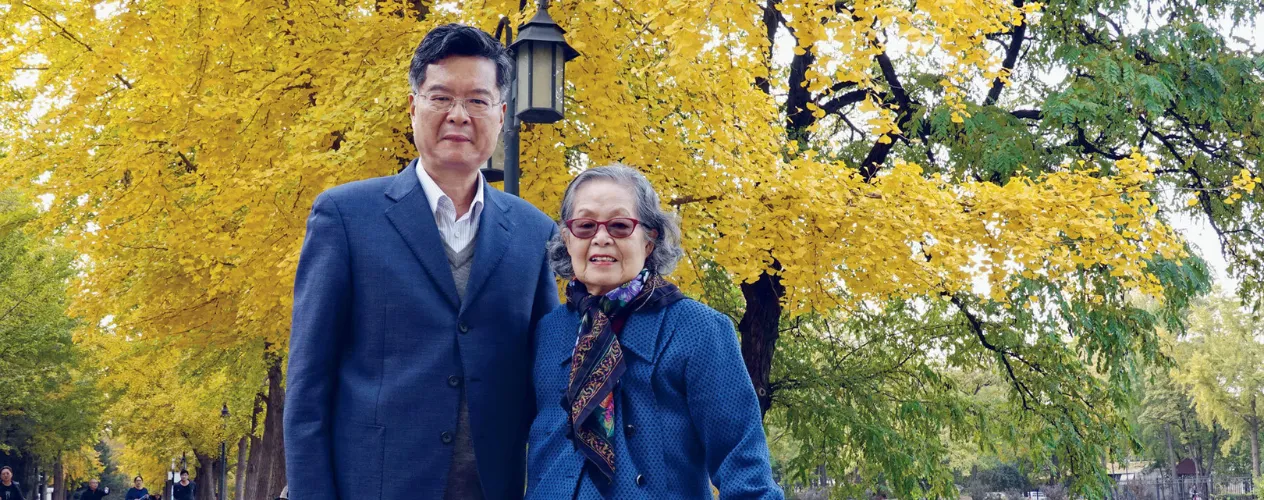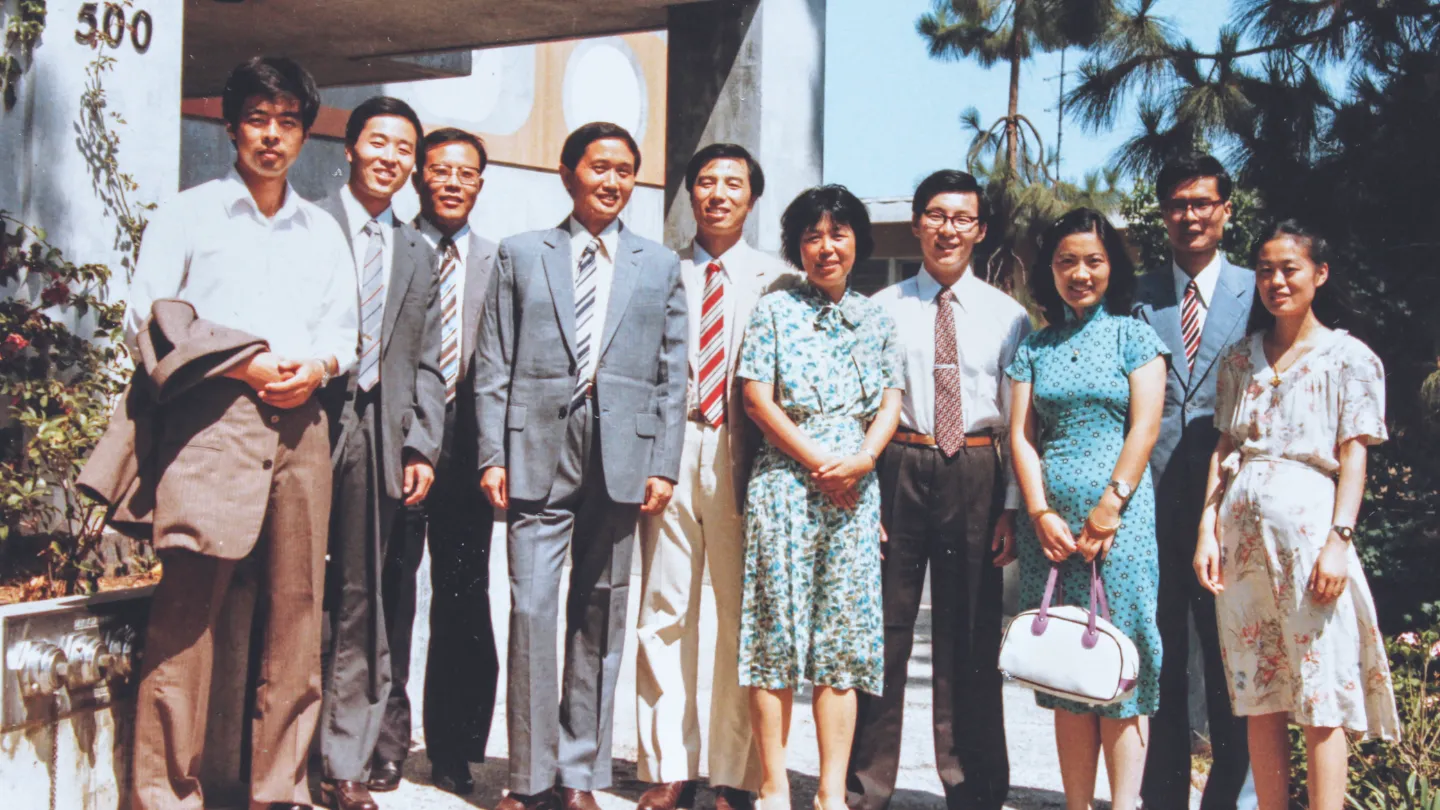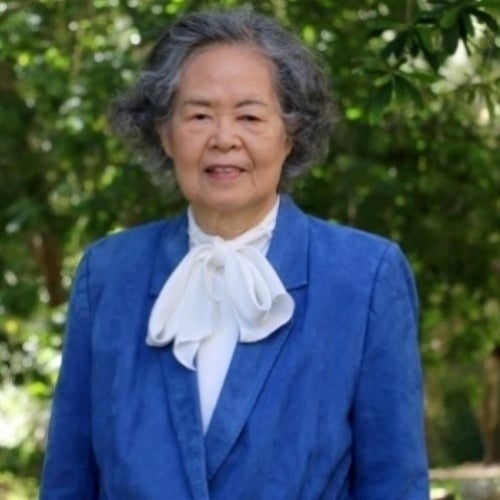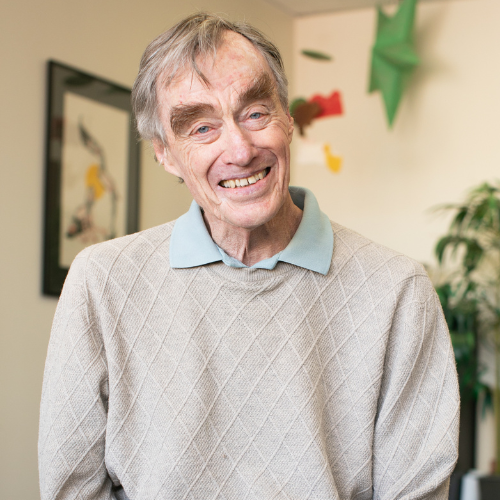'Mustard Seeds' in Full Bloom
FSPH Professor Emeritus Virginia C. Li witnessed the results of more than three decades of Fielding School training of scholars who returned home to China to make a difference.

DURING HER VISIT to China in fall 2019, Virginia C. Li was reminded of a biblical phrase: “If you have faith the size of a mustard seed, you shall move mountains.”
Li, a professor emeritus at the Fielding School, estimates that she has made 100 trips to her native country since 1974, when she went back for the first time, more than a quarter-century after moving to New York City with her family at the age of 13. Most of those trips have been in her capacity as a teacher and researcher, working on issues such as reducing contraceptive failure in family planning and a successful effort in tobacco control through a crop-substitution program aimed at tobacco farmers.
After Li’s professional commitments on the fall 2019 trip, she took the opportunity to visit approximately a dozen FSPH alumni and former visiting scholars whom she had mentored, going back as far as the mid-1980s. “These men and women have all gone on to make major contributions to China as senior health scholars and administrators, as well as movers shaping programs, policies, and services,” Li says.
She credits Dr. Roger Detels, FSPH distinguished research professor of epidemiology and dean emeritus, with planting the “mustard seeds” that have, in Li’s view, figuratively moved mountains in China.
In 1985, when Detels was the Fielding School’s dean, he opened the door for eight visiting scholars from the Nanjing College for Population Programme Management and the provincial agencies under the National Family Planning Commission of China to come to FSPH, with the support of the United Nations Population Fund (UNFPA). Their paths to studying in the U.S. had been blocked, Li says, after Congress suspended funding for UNFPA because of its support of China’s family planning program, which included abortion.
Before long, it wasn’t just eight individuals coming to the Fielding School from China but dozens, including both visiting scholars and master’s and doctoral students — many of them supported by the UCLA/Fogarty AIDS International Training and Research Program, which was established under Detels’ leadership in 1988. “Since that time, China has made giant leaps in advancing the physical, mental, and social well-being of its people in cities and villages,” Li says. And the Fielding School, she notes, has contributed greatly by preparing midlevel Chinese public health professionals and academics to become leaders in health policy, research, and practice, with major impacts on HIV/AIDS control, family planning, and reproductive health in China and beyond. Li shared her reflections on five of the individuals she caught up with during her late-2019 visit:
Hongtao Hu (visiting scholar, 1985-1986): Hu went on to serve as director general of the Department of International Cooperation in the former National Population and Family Planning Commission of China from 2010 to 2013, providing leadership in the implementation of an international collaborative project promoting quality of care in family planning and reproductive health. The project, which introduced informed choice and removal of birth targets, greatly contributed to the changes in China’s national population and family planning policies from a demographicdriven approach to one that was people-centered, rights-based, and service-oriented.
Dr. Xiaoming Sun (visiting scholar, 1985-1986): As a professor and vice president of Nanjing College for Population Programme Management, Sun’s research has focused on population studies, public health, and behavioral sciences. He helped to improve migrant workers’ well-being in a project piloted in the economic development zone of the eastern China city of Changzhou. Promoting migrant workers as peer educators, the project’s success led to its adaptation in cities nationwide by the China Family Planning Association. Passionate about quality and equity in reproductive health and family planning for women and men of all ages, Sun has devoted much of his career to improving these service systems throughout rural and urban China.
Dr. Zunyou Wu (MPH ’92, PhD ’95): Wu served as the director of China’s national HIV/AIDS program from 2015 to 2017, overseeing the development of the country’s HIV/ AIDS response and working closely with international organizations and experts to raise awareness, develop a strategy, obtain funding, and implement solutions. His research, often in collaboration with Detels, contributed to scientifically informed policies to prevent HIV infection among vulnerable groups such as sex workers, people who misuse drugs, migrants, and men who have sex with men. Wu is now the chief epidemiologist for the Chinese Center for Disease Control and Prevention, where he has played a key role in the country’s response to the pandemic of SARS-CoV-2, the virus that causes COVID-19, and is also an adjunct professor in FSPH’s Department of Epidemiology.
Wei Guo (visiting scholar, 2006- 2007): For more than a decade, Guo played a key role in managing China’s HIV surveillance system at the National Center for AIDS/STD Control and Prevention, where he collaborated with international experts to lead a countrywide HIV epidemic estimation program, as well as designing national cohort studies across nine provinces involving men who have sex with men, sex workers, and people who use drugs. In 2018, Guo became the strategic information adviser at UNAIDS China, where he has continued to support the country’s HIV evaluation and response. During the COVID-19 pandemic, Guo, together with UNAIDS colleagues, supported government and community partners to ensure people living with HIV in Hubei province could access HIV-related services.
Yan Li (PhD ’08): Armed with her PhD in epidemiology, Li returned to the Guangdong Provincial Center for Disease Control and Prevention and was promoted to vice director, then director of the Institute for HIV/AIDS Control and Prevention. Li has also played an important role in China’s response to the COVID-19 pandemic in Guangdong province, the most populous province in the country, with 30 million migrants among its more than 113 million people.
Virginia Li estimates that she has advised and mentored nearly 40 FSPH students and visiting scholars from China during the course of her career, and not just academically. “I wanted to make sure they received rigorous training, but that they also learned about American culture and society,” she says. “I would take them sightseeing on weekends and have them to my home for meals. I am so proud of the difference they made after returning. And when I see them, they all tell me how grateful they are to have had the opportunity to study at our school.”

A 1985 photo of Chinese visiting scholars who were then studying at the Fielding School, including Dr. Xiaoming Sun (third from left) and Hongtao Hu (second from right).

